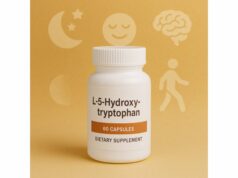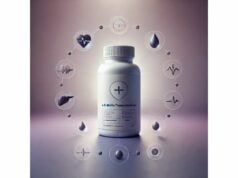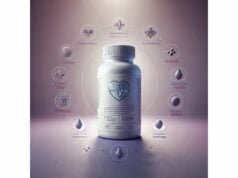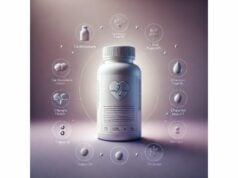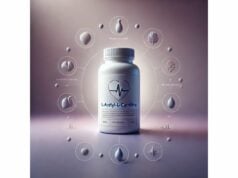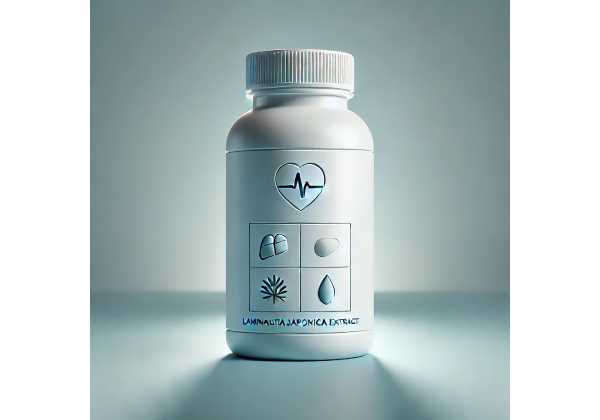
Laminaria japonica—better known as kombu—is a cultivated brown seaweed long used in East Asian cuisine and traditional health practices. Modern extracts concentrate its water-soluble polysaccharides (such as alginate and fucoidan), carotenoids (like fucoxanthin), minerals (notably iodine), and polyphenols into a convenient capsule, powder, or liquid. People turn to Laminaria japonica extract for practical reasons: support for metabolic health and weight management, help with healthy cholesterol levels, digestive comfort, and general antioxidant and immune support. The catch is that not all extracts are alike. The biological effects depend on which fractions are standardized (alginate vs. fucoidan vs. full-spectrum), the dose, and how much iodine or contaminants are removed during processing. This guide translates the science into clear, safe, everyday guidance—what it can do, how to use it, how much to take, what to look for on labels, and who should avoid it.
Quick Overview
- May support body-fat reduction and healthy lipids in overweight adults; benefits often link to alginate-rich kombu.
- Fucoidan-standardized extracts are researched for immune modulation and adjunctive clinical uses.
- Typical daily ranges: 500–1,500 mg extract; fucoidan 300–1,000 mg; alginate 1–3 g from food or standardized products.
- Excess iodine can disrupt thyroid function; choose iodine-controlled extracts if supplementing daily.
- Avoid if you have thyroid disease, are pregnant without clinician guidance, or take anticoagulants unless cleared by your doctor.
Table of Contents
- What is Laminaria japonica extract?
- Does it work and what benefits are realistic?
- How to use it day to day
- How much should you take?
- Safety, interactions, and who should avoid it
- Evidence at a glance
What is Laminaria japonica extract?
Laminaria japonica (also called Saccharina japonica) is the principal seaweed behind culinary kombu. In supplement form, manufacturers extract and concentrate specific components:
- Alginate (algin): A viscous, soluble fiber that forms gels in the gut. It can slow gastric emptying, bind bile acids, support regularity, and modestly affect post-meal glucose and appetite.
- Fucoidan: A sulfated fucose-rich polysaccharide with immune-modulating, anti-adhesive, and anticoagulant-like properties. It’s the most studied “bioactive” in brown seaweeds for clinical applications.
- Fucoxanthin: A carotenoid pigment implicated in lipid metabolism and antioxidant activity.
- Polyphenols and phlorotannins: Marine antioxidants with free-radical scavenging and enzyme-modulating activity.
- Minerals—especially iodine: Iodine supports thyroid hormone synthesis, but excess can be harmful; high-quality kombu extracts control iodine content.
How extracts differ
- Full-spectrum powders of boiled/dried kombu deliver alginate plus native iodine and minor compounds.
- Standardized fractions—such as fucoidan 85–95%—are designed for targeted immune and metabolic effects with minimal iodine.
- Iodine-reduced kombu powders retain fiber while limiting thyroid impact.
- Purified alginate products focus on satiety and metabolic endpoints.
Quality markers to look for
- Iodine disclosure: Responsible brands state iodine per serving (e.g., 150–300 mcg) or “iodine-controlled” below set thresholds.
- Standardization: Clear labeling of % fucoidan or grams of alginate per serving.
- Contaminant testing: Certificates of analysis for heavy metals (arsenic, cadmium, lead, mercury), especially inorganic arsenic; microbial and radioisotope screens where relevant.
- Extraction details: Food-grade solvents (often hot water); low-temperature processes to preserve polysaccharide integrity; molecular-weight information for fucoidan (LMW vs. native) when clinical parity matters.
What it is not
Laminaria japonica extract is not a quick weight-loss drug, a stand-alone cholesterol therapy, or a replacement for thyroid medication. It’s a supportive nutrition tool whose best results arrive alongside diet, activity, and medical care when needed.
Does it work and what benefits are realistic?
Metabolic health and body composition
Human trials of iodine-reduced kombu powders that deliver several grams of alginate per day report modest, sex-specific reductions in body-fat percentage among overweight adults over 8–12 weeks, with neutral effects on thyroid hormones when iodine is controlled. Real-world takeaway: expect small but meaningful changes when kombu augments calorie-aware eating, not dramatic losses in isolation. Mechanistically, alginate increases gastric viscosity and delays nutrient diffusion, blunting post-meal glycemic spikes and nudging satiety signals. Over weeks, those small meal-to-meal changes can accumulate into better energy balance.
Cholesterol and lipids
Brown seaweed fibers bind bile acids, increasing fecal excretion and encouraging the liver to pull LDL cholesterol from circulation to synthesize new bile. Meta-analytic signals suggest reductions in total and LDL cholesterol with seaweed or extracts, especially when alginate intake is consistent. Improvements are typically modest (think single-digit percentage changes), but they pair well with diet adjustments.
Glucose and appetite regulation
Soluble fibers like alginate slow carbohydrate absorption and improve second-meal effects. Some people notice better post-meal comfort and less snacking. The effect is subtler than glucomannan but often gentler on the gut.
Gut barrier and microbiome
Laminaria polysaccharides behave as prebiotic substrates, feeding Bacteroides, Faecalibacterium, and other short-chain fatty acid producers. In models and early human work, this correlates with improved intestinal barrier function and lower low-grade inflammation markers. Individuals whose microbiota harbor alginate-degrading genes may respond more strongly, which partly explains variability across trials.
Immune modulation (fucoidan)
Fucoidan-rich extracts interact with selectins and pattern-recognition receptors, shaping leukocyte trafficking and cytokine tone. Clinical interest includes supportive care in oncology (quality-of-life, hematopoiesis recovery, and treatment tolerance), respiratory health seasonally, and adjunctive wound or adhesion management in specialty settings. For everyday users, this translates to a cautious, adjunctive role rather than a primary therapy.
Antioxidant and liver support
Fucoxanthin, phlorotannins, and fucoidan contribute antioxidant capacity, with preliminary evidence for nonalcoholic fatty liver parameter improvements in lifestyle contexts. Expect incremental benefits layered on top of nutrition and activity—not a single-agent cure.
Who tends to benefit most
- Overweight adults seeking gentle satiety support and small improvements in lipids.
- Individuals aiming to increase soluble fiber diversity while minimizing gas or bloating from terrestrial fibers.
- People looking for immune modulation via fucoidan, under professional guidance and with realistic expectations.
What to temper
- Claims of “rapid fat melting,” “thyroid boosting,” or “detox” are red flags.
- Benefits depend on dose, extract type, and iodine control; under-dosed, non-standardized powders may do little.
How to use it day to day
Pick the right format for your goal
- For satiety and cholesterol support: Look for alginate-rich kombu or purified alginate. Aim for a daily alginate intake in the low gram range, split with meals.
- For immune modulation or adjunctive clinical goals: Choose fucoidan-standardized products (e.g., 85–95% fucoidan) with disclosed molecular weight and low iodine.
- For broad nutritional support: Consider iodine-controlled full-spectrum kombu extracts that preserve a mix of polysaccharides and antioxidants but limit iodine exposure.
Timing
- With meals for alginate-rich products to support viscosity, satiety, and post-prandial lipids/glucose.
- Once or twice daily for fucoidan extracts; meal timing is less critical, though taking with food helps tolerance.
How to start (two-week ramp)
- Baseline check: Review your daily iodine sources (iodized salt, dairy, eggs, seafood, multivitamin). If intake is already high, choose iodine-controlled extracts.
- Week 1:
- Alginate focus: 250–500 mg alginate equivalent with one or two meals.
- Fucoidan focus: 150–300 mg fucoidan daily.
- Week 2 and beyond:
- Alginate: Increase toward 1–3 g/day (from extract or kombu powder standardized for alginate), divided with meals.
- Fucoidan: 300–1,000 mg/day depending on product and purpose.
- Hydration: Drink an extra glass of water with alginate doses.
- Track: Note appetite, bowel habits, and any thyroid-related symptoms (palpitations, neck fullness, heat/cold intolerance). Adjust or pause if needed.
Stacking and pairings
- With meals: Pair alginate with protein and vegetables to amplify satiety.
- With lipid goals: Combine with sterol- or fiber-rich foods (oats, psyllium) on alternate meals rather than layering many viscous fibers at once.
- With probiotics or prebiotics: If you use resistant starch or inulin and experience gas, consider alternating days; alginate often causes less fermentation discomfort.
- Avoid redundant iodine: If your multivitamin supplies 150 mcg iodine and you regularly eat seaweed/seafood, pick iodine-reduced extracts.
Storage and shelf life
Keep capsules in a cool, dry place. Powders should be sealed to avoid moisture; fucoidan is hygroscopic. Avoid heat exposure that can depolymerize polysaccharides.
Realistic expectations
- Appetite and digestive comfort often change first (1–2 weeks).
- Body-fat and lipid shifts typically require 8–12 weeks of consistent use alongside diet and activity.
- Immune-related outcomes are individualized; use under clinician guidance for medical aims.
How much should you take?
Everyday ranges (adults)
- Full-spectrum kombu extract/powder: 500–1,500 mg/day of extract for general support, or enough product to provide 1–3 g/day alginate if satiety/lipids are your targets.
- Fucoidan-standardized extract: 300–1,000 mg/day (elemental fucoidan), typically split once or twice daily.
- Iodine exposure: Keep total iodine (diet + supplements) ≤ 1,100 mcg/day for most adults; many people do well in the 150–300 mcg/day range from all sources. If relying on kombu products daily, choose iodine-reduced or iodine-controlled extracts and confirm label values.
By goal
- Appetite and weight management: Prioritize alginate to ~1–3 g/day, divided with meals (via standardized kombu or alginate products).
- Cholesterol support: Similar alginate targets; combine with diet changes.
- Immune modulation (fucoidan): 300–600 mg/day for general support; up to ~1,000 mg/day short-term under professional supervision for specific adjunctive purposes.
- Thyroid-neutral support: Use iodine-reduced kombu or fucoidan-standardized extracts with minimal iodine.
Duration
- Give metabolic goals 8–12 weeks before judging effects.
- For ongoing maintenance, many rotate: 5 days on / 2 days off, or “8–10 weeks on, 2–4 weeks off,” especially when dietary iodine is variable.
Special situations
- Pregnancy and lactation: Do not start seaweed extracts without clinician oversight; iodine needs change and excess can harm maternal and infant thyroid function.
- Thyroid disorders (hypo- or hyper-): Use only with your endocrinologist’s approval and choose iodine-controlled products if approved.
- Anticoagulant therapy: Fucoidan may have anticoagulant-like properties; obtain medical guidance and monitor coagulation parameters if advised.
Practical label math
If a kombu capsule states: “Kombu extract 500 mg; alginate 35%; iodine ≤ 50 mcg,” then two capsules with lunch and dinner deliver 350 mg alginate/day and ≤ 100 mcg iodine/day—a reasonable starting point. To reach ~1.5 g alginate/day, you would need about 6–8 such capsules, but many prefer a powder or a product standardized to higher alginate per serving.
Safety, interactions, and who should avoid it
Iodine: the main variable to control
Kombu naturally concentrates iodine; excess intake can provoke hypo- or hyperthyroid states, goiter, or thyroiditis in susceptible individuals. Keep dietary plus supplemental iodine below 1,100 mcg/day for most adults unless a clinician prescribes otherwise. If you already consume iodized salt, dairy, eggs, and seafood, select iodine-reduced extracts or fucoidan standardized products with minimal iodine.
Heavy metals and contaminants
Seaweeds can contain inorganic arsenic and trace cadmium, lead, and mercury. Risk depends on species and processing; kombu is typically lower in inorganic arsenic than hijiki, but testing still matters. Choose brands that publish third-party heavy-metal certificates and specify inorganic arsenic levels, not just “total arsenic.” Open-water harvest regions, post-Fukushima radioisotope testing, and GMP manufacturing are all relevant quality cues.
Gastrointestinal effects
Alginate’s viscosity can cause fullness, mild bloating, or softer stools, especially at higher doses or without adequate fluids. Start low and divide doses with meals.
Coagulation considerations
Fucoidan may exhibit heparin-like activity in vitro and in some models. If you use warfarin or other anticoagulants/antiplatelets, have a bleeding disorder, or are scheduled for surgery, seek medical clearance before use and discontinue 1–2 weeks prior to elective procedures if advised.
Drug and nutrient interactions
- Thyroid medications: Variable iodine intake can interfere with dosing stability. Keep iodine steady day to day, or avoid kombu extracts unless your clinician approves.
- Iron status: Very high alginate may reduce mineral absorption fractionally; take minerals at a different time of day if clinically low.
- Antihypertensives: Small blood pressure reductions have been noted in kombu-fed groups; monitor if you’re sensitive to additive effects.
Who should avoid or use only with supervision
- People with known thyroid disease, nodules, or autoimmune thyroiditis unless their endocrinologist explicitly approves a specific iodine-controlled product.
- Pregnant or breastfeeding individuals without professional guidance.
- Those on anticoagulants or with bleeding disorders unless supervised.
- Anyone with a history of seaweed allergy.
Stop and seek care if you notice neck swelling, palpitations, heat or cold intolerance, unusual bruising/bleeding, or persistent GI distress.
Evidence at a glance
Human trials and systematic reviews
- Body composition and lipids: Randomized, double-blind trials using iodine-reduced kombu providing ~3 g/day alginate for 8–12 weeks report significant decreases in body-fat percentage in men and safe thyroid markers. Additional trials suggest small reductions in systolic blood pressure and improvements in adiponectin in some groups.
- Metabolic syndrome: A systematic review of Laminaria japonica for features of metabolic syndrome concludes that active fractions (alginate, fucoidan, fucoxanthin, phlorotannins) likely act through reduced oxidative stress, improved bile acid handling, AMPK signaling, and modulation of inflammatory cytokines.
- Immune modulation and adjunctive therapy: Fucoidan has been investigated as an adjuvant with standard oncology regimens and in supportive settings, focusing on quality-of-life and hematologic recovery. These are adjunct roles; clinical supervision is essential.
- Liver and glycemic support: Preclinical and emerging clinical data show improvements in markers related to non-alcoholic fatty liver and post-prandial glycemia, primarily mediated by viscous fiber effects and gut microbiome shifts.
Mechanisms that make sense in practice
- Viscosity and sequestration: Alginate thickens gastric contents and binds bile acids, explaining satiety and LDL effects.
- Microbiome-mediated: Select gut bacteria ferment alginate and fucoidan to short-chain fatty acids that influence appetite, insulin sensitivity, and gut barrier integrity.
- Receptor-level signaling: Fucoidan interacts with selectins and pattern-recognition receptors, influencing leukocyte adhesion and immune tone.
- Antioxidant network: Fucoxanthin and phlorotannins contribute to redox balance, aiding metabolic tissues under inflammatory stress.
How strong is the evidence?
- Strongest for satiety and modest LDL effects with adequate alginate intake and dietary support.
- Promising but mixed for weight/fat outcomes, often sex-specific and dose-dependent.
- Adjunctive/conditional for immune and oncology settings (fucoidan); pursue only with clinician oversight.
- Safety is generally good when iodine is controlled and products are tested for heavy metals.
Bottom line: Laminaria japonica extract is best viewed as a targeted fiber- and polysaccharide-rich tool with add-on benefits for appetite, lipids, and gut health, plus specialized roles for fucoidan. Choose the right fraction, control iodine, and use it consistently alongside diet and movement.
References
- Effects of Daily Kelp (Laminaria japonica) Intake on Body Composition, Serum Lipid Levels, and Thyroid Hormone Levels in Healthy Japanese Adults: A Randomized, Double-Blind Study (2021) (RCT)
- Iodine – Health Professional Fact Sheet (2024) (Guideline)
- The Effect of Laminaria japonica on Metabolic Syndrome (2022) (Systematic Review)
- Dietary exposure to heavy metals and iodine intake via seaweed and halophytes (2023)
- Clinical applications of fucoidan in translational medicine for adjuvant cancer therapy (2019) (Review)
Medical Disclaimer
This guide is educational and not a substitute for personalized medical advice. Laminaria japonica extracts can meaningfully change iodine exposure and may interact with medications or medical conditions. Always consult your physician or a qualified clinician—especially if you have thyroid disease, are pregnant or breastfeeding, take anticoagulants, or are managing chronic conditions—before starting any new supplement.
If you found this helpful, please consider sharing it on Facebook, X (formerly Twitter), or your preferred platform, and follow us for more evidence-based nutrition guides. Your support helps us keep producing high-quality content.

